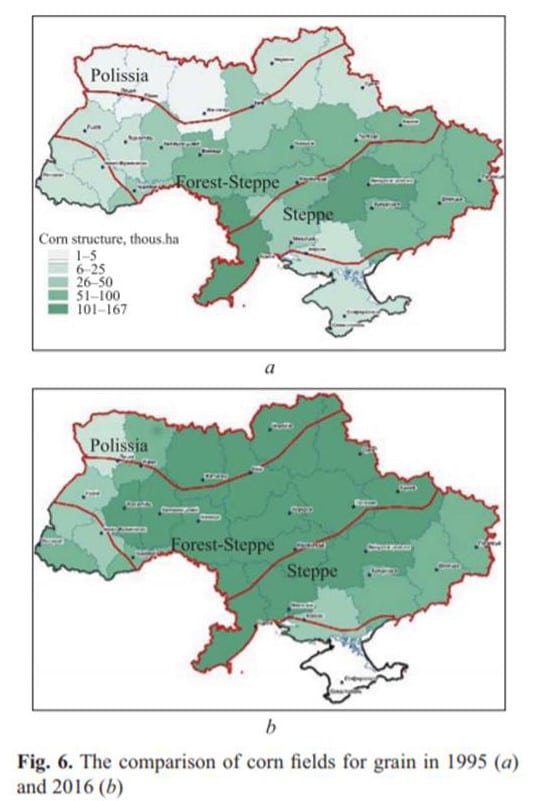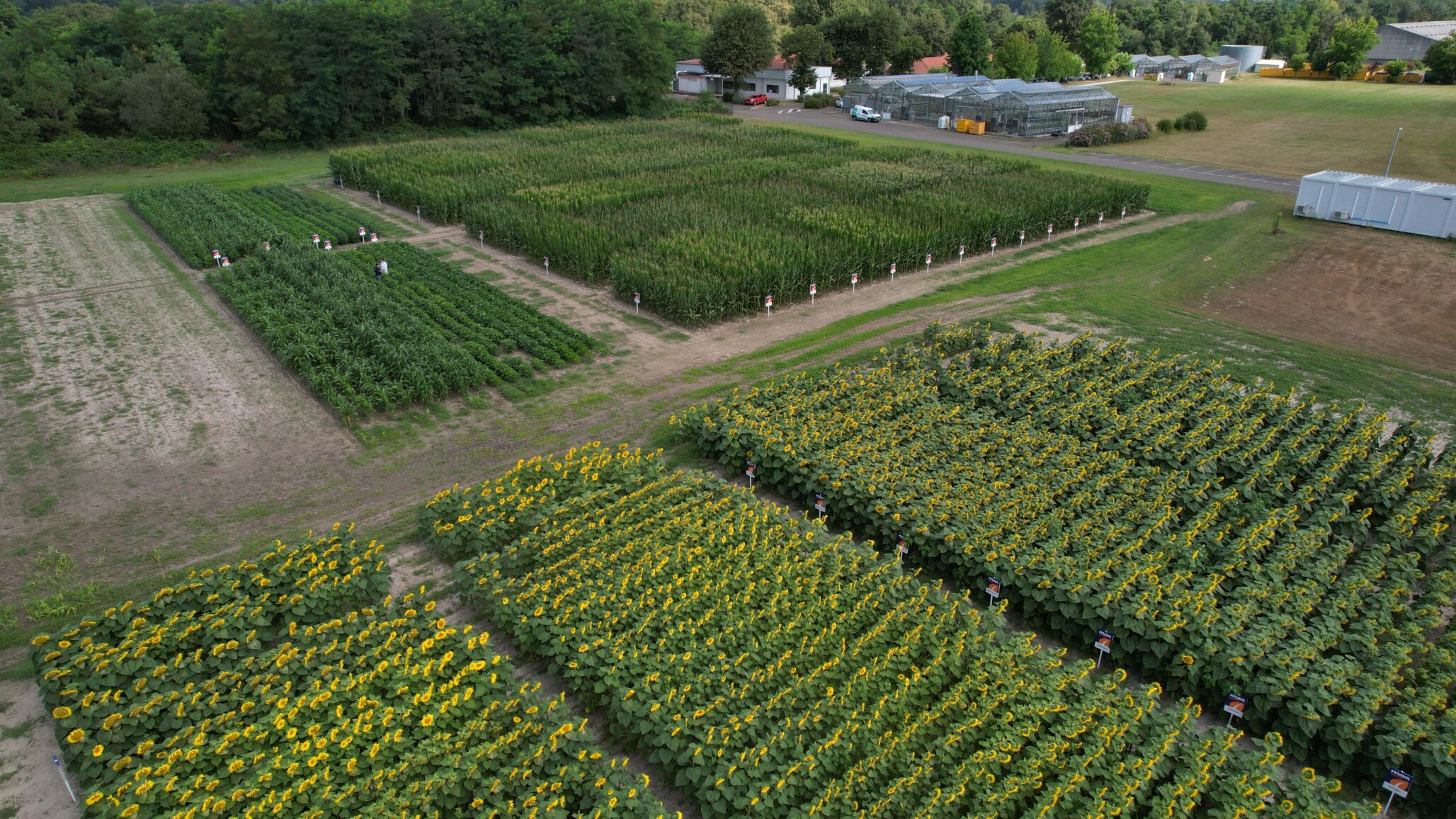Future crop production is endangered by climate change, causing alterations in temperatures, changing precipitation patterns, and more frequent extreme weather events. Droughts and floods will be occurring more often and will become more intense in nature. It is therefore urgent to understand the potential effects that changing weather parameters may have on crop yields in order to adapt to climate change.
The effect of global warming on agriculture is manifold. A minimal temperature increase may improve yields in the places with a temperate climate, while extreme increase may result in poor yields.
As an important player on the global grain market, thanks to its large tracts of suitable agricultural lands, Ukraine is particularly interesting. Based on historic climate data it is clear that Ukraine is already experiencing increasing temperatures, and climate forecasts suggest further warming, particularly in Southern Ukraine.
Zonal differences
A Ukraine analysis of long-term series of climatic parameters based on satellite data, climatic modelling, statistical analysis of crop yield and gross collection of grain crop showed that there is a difference between the major climatic zones in the country. In the northern Polissia zone there has been a reduction of the area of cold-resistant crops such as grains and grain legumes, flax, lupine, whereas the area of energy crops, including corn, soy and even sunflower has increased. In the central Forest-Steppe zone, recurring droughts have favoured late crops, such as sunflower and corn. And in the south-east Steppe zone, with its hot summers, short winters and a moisture deficit during the vegetation period, there has been a reduction of spring grain crops and an increase of corn, sunflower and soybean with the obligation of using suitable stress resistant genetics in order to maintain an acceptable level of yield.
To secure future crop production in view of climate change, more investments into regionally targeted adaptation strategies are needed, such as into improvement of agronomic management strategies and developing drought resistant plant material.
Drought resistant plant material
Critical initiatives to adapt crop production to climate change need to include improvements in both agronomy and genotypes (development of drought-tolerant varieties). Our company Euralis has realized early on that adaptation of our varieties to climate change is going to be an essential part of the solution to cope with climate change.








